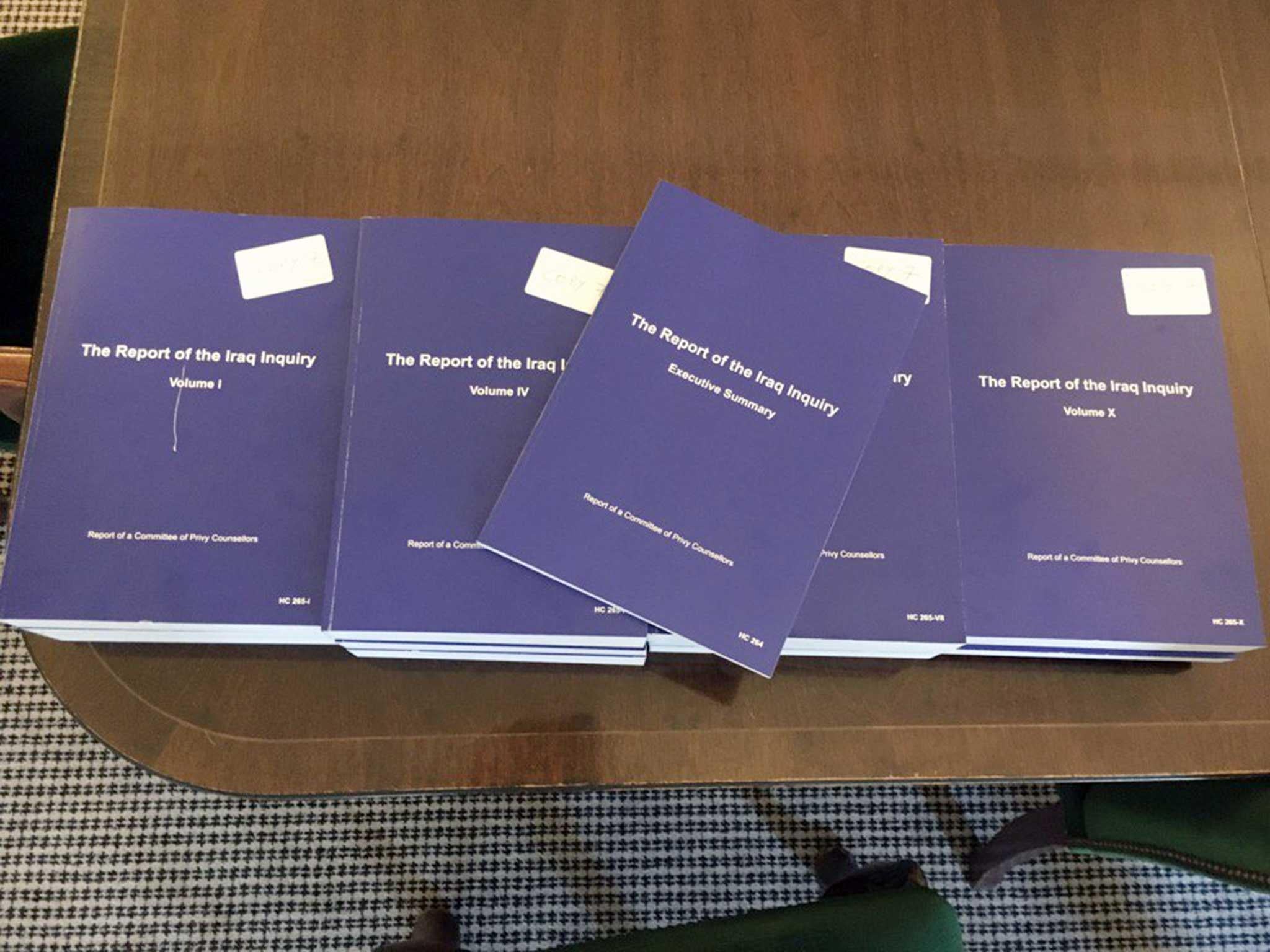Chilcot report: How the world reacted to its damning conclusions on the Iraq War
Reactions to the long-awaited historic report have been divided

Your support helps us to tell the story
From reproductive rights to climate change to Big Tech, The Independent is on the ground when the story is developing. Whether it's investigating the financials of Elon Musk's pro-Trump PAC or producing our latest documentary, 'The A Word', which shines a light on the American women fighting for reproductive rights, we know how important it is to parse out the facts from the messaging.
At such a critical moment in US history, we need reporters on the ground. Your donation allows us to keep sending journalists to speak to both sides of the story.
The Independent is trusted by Americans across the entire political spectrum. And unlike many other quality news outlets, we choose not to lock Americans out of our reporting and analysis with paywalls. We believe quality journalism should be available to everyone, paid for by those who can afford it.
Your support makes all the difference.After seven years of waiting, £10 million worth of funding and 2.6 million words of judgement, the Chilcot report into the Iraq war has finally been published. The prolonged and painstaking process of the investigation and the enormity of the subject mean tensions have been at a fever-pitch as the final report was unveiled.
Sir John Chilcot concluded that the conflict was “unnecessary” and evidence that weapons of mass destruction were operated by Saddam Hussein had not been substantiated “beyond doubt” when the decision to invade was made.
He stated that then-Prime Minister Tony Blair did not deliberately mislead the Government or the country and “is not questioning” the sincerity or conviction of his decision. However, Blair’s planning for the conflict has been deemed “wholly inadequate”.
Reactions to the report have been fiercely divided. With commentators, victims’ families, and lawyers offering different thoughts on what happens now and next.
Tony Blair
For the man at the centre of it all, it has been a day of anger, scrutiny and denial. He said he wished to express his “sorrow, regret and apology” for events, but said he remains convinced invading Iraq was “the right thing to do” and “cannot and will not say we made the wrong decision.”
Soldiers’ families
Sarah O’Connor, whose brother Bob died when his military aircraft was shot down over Baghdad in 2005, described Blair as “the world’s worst terrorist.” She broke down in tears following publication of the report, saying: “There is one terrorist in this world that the world needs to be aware of, and his name is Tony Blair, the world’s worst terrorist.”
Rose Gentle, whose son Gordon was 19 years old when he died, said the report represented closure for her family. She said: “Now we can turn and say we have got the proof. Twelve years of fighting for my son have been worth it.”
The lawyers
Legal commentator Joshua Rozenberg says the report has “left the door open for Tony Blair to be prosecuted, noting that General Sir Michael Rose, who has been advising the families of military personnel who died, has said action might be taken against the former Prime Minister for “malfeasance in a public office.”
The politicians
Labour leader Jeremy Corbyn has denounced the war as “an act of military aggression launched on a false pretext”. He told Parliament: “Those who took the decisions [must] face up to the consequences of their action.”
SNP politician Alex Salmond has called for legal action to be taken against Blair, saying: “After such carnage, people will ask inevitable questions of was conflict inevitable and worthwhile? The answer from Chilcot is undoubtedly no. And who is responsible? The answer is undoubtedly Tony Blair. There must now be a consideration of what political or legal consequences are appropriate for those responsible.”
Former Lib Dem leader Sir Menzies Campbell said the report showed Blair had acted with poor judgement, saying: “It was misconceived and it led to a vacuum in Iraq which has been filled by a civil war where 179 soldiers died.”
The media
The New York Times called Chilcot’s report is “a devastating critique of Tony Blair”, saying the report showed his decision to invade Iraq had been made on: “the basis of flawed intelligence that went unchallenged, a shaky legal rationale, inadequate preparation and exaggerated public statements.”
Broadcaster Jon Snow said the report sealed Blair’s reputation irrevocably, tweeting: “Blair at last looks shocked, not by Iraq’s destruction, but by the devastating Chilcot report hammering his reputation firmly into the ground.”
Writing for The Independent, Lee Williams considers links between past decisions and present political play, suggesting: “Chilcot has underlined exactly why Labour needs Jeremy Corbyn- one of the few to oppose the Iraq War.”
The Independent’s chief political commentator John Rentoul expresses regret that the Iraq war is now destined irrevocably to be Blair’s legacy. He writes: “As we approach the final verdict of history, there can be no doubt now that it will be negative. Tony Blair had a good record as Prime Minister domestically, and he did the right thing in Sierra Leone and Kosovo, but he will be remembered for Iraq.”
US Government
Yet, amid the flurry of press conferences and media statements, silence on the issue from one source was seen by many as the most striking response to the report.
The US Government has declined to comment, telling The Independent that as the Iraq Inquiry is an independent body appointed by the UK government and it cannot therefore pass remark.
US Department of State spokesperson John Kirby said: “The Chilcot Committee was an independent body appointed by the Government of the UK. Questions about the inquiry or those who participated should be directed to the Committee.”
Join our commenting forum
Join thought-provoking conversations, follow other Independent readers and see their replies
Comments